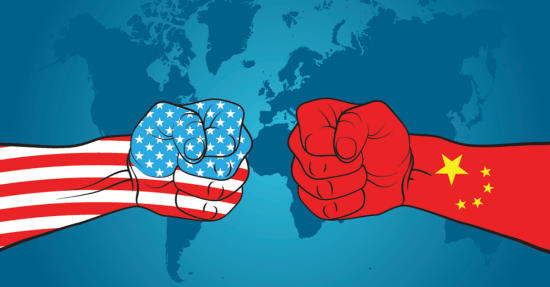Should the US hit China with sanctions over cyberespionage?
 China and the United States usually treat each other the way two heavyweight boxers do – circling each other, jabbing occasionally, but never throwing a big punch that could leave them exposed.
China and the United States usually treat each other the way two heavyweight boxers do – circling each other, jabbing occasionally, but never throwing a big punch that could leave them exposed.
But sometimes one of them lands a punch, like China apparently did in June when it allegedly hacked the US government and stole data on millions of current and former federal employees.
In the aftermath of the breach, President Obama was reportedly considering sanctions against the attackers, under the authority of an executive order he signed in April to punish individuals or entities engaged in cyberattacks against the US.
Despite pressure from members of Congress and several presidential candidates to hit back against China over the attack, the threatened sanctions never came to pass.
That could change very soon.
The Obama administration is reportedly now developing a package of economic sanctions against Chinese individuals and companies – not for hacking the US government, but for theft of trade secrets from US companies, according to a report from the Washington Post.
Sources within the administration told the Post that the sanctions would send a “signal to Beijing” that the US is going to start fighting back against cyberespionage.
This would be the first use of the president’s new authority under the April executive order, the anonymous officials said.
The sanctions, which include freezing of assets and a ban on commercial transactions with the attackers, could essentially cripple a large Chinese company that does business internationally, the Post reported.
As for the cyberattacks that breached US government personnel records, the administration believes those attacks were not geared towards economic gain, but for national security intelligence.
The US may be engaging in “covert cyber action” in response to those spying attacks, sources told the Post, but the administration wants to confront China publicly over economic espionage that it says is harming US businesses.
China’s espionage has been a sore spot for Washington for the past few years.
Last May, the US Department of Justice took the unprecedented step of indicting members of the Chinese military on charges of infiltrating the networks of several major US steel and energy companies to benefit Chinese state-owned enterprises.
The US is also seeking extradition form Canada of a Chinese national it accuses of hacking US military contractors Boeing and Lockheed Martin.
If it decides to impose sanctions, the US could invite retaliation in the form of counter-sanctions against US companies doing business in China.
Chinese President Xi Jinping comes to Washington in October for a state visit, and cybersecurity will undoubtedly be on the agenda for talks with Obama.
If Obama imposes sanctions before Xi’s visit, that could be a very awkward dinner.
Can China’s economy, which is reeling from a collapsing stock market bubble, withstand the pressure of US sanctions against Chinese companies?
Could we end up in a new trade war between the US and China, hurting the economies of both countries, and the rest of the world?
Hopefully, these are questions the US administration is considering before deciding what to do next.
Image of USA vs China courtesy of Shutterstock.com.
Article source: http://feedproxy.google.com/~r/nakedsecurity/~3/fpkmvgaE_D8/